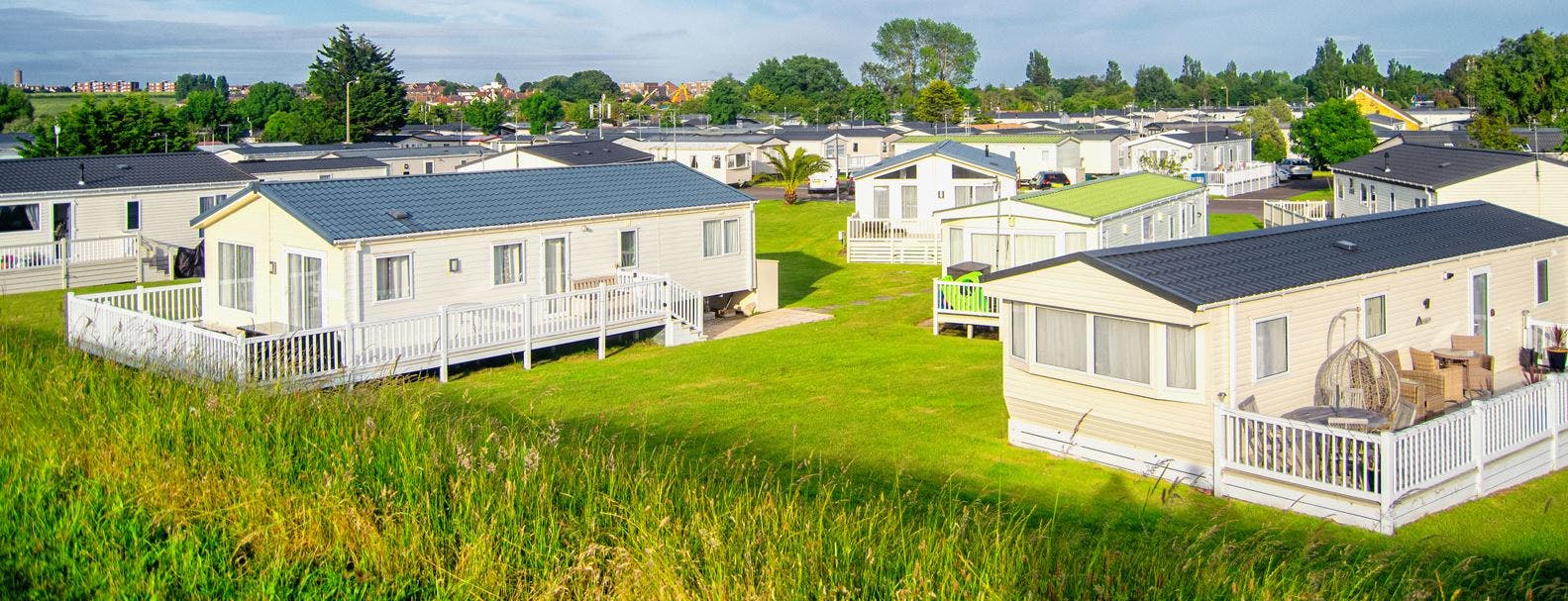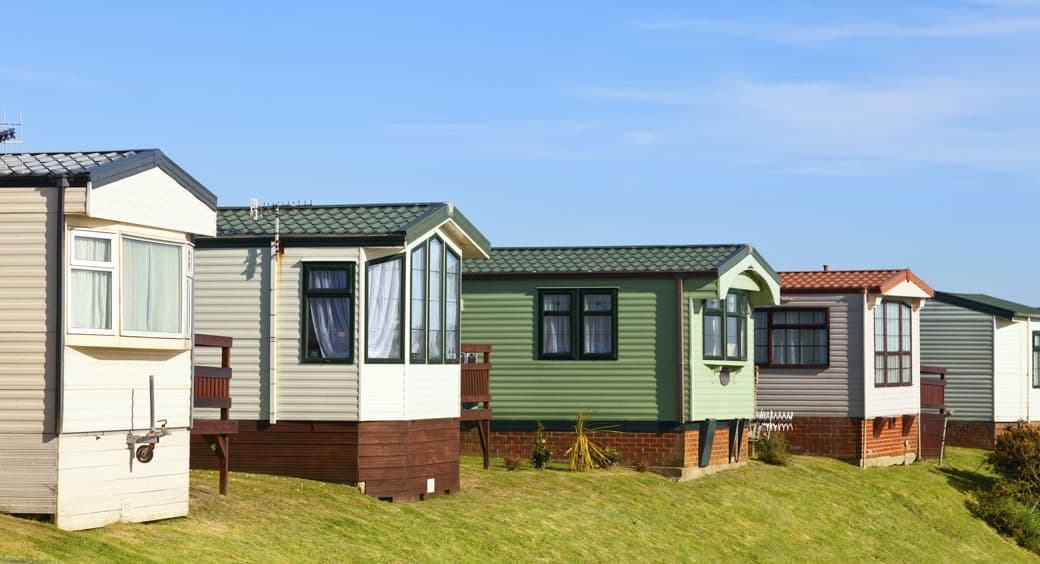Why and how to invest in mobile home parks
A look at why mobile home parks are one of the best investments in all of commercial real estate, and how to discover a park worth investing in.

Reonomy is not a listings platform, but helps brokerage and investment teams of all sizes find off-market deals and analyze real estate in-aggregate.
Investing in mobile home parks
Did you know that it’s estimated that roughly 5.6% of the U.S. population—17.7 million people—presently live in mobile homes?
Demand is high, and the commercial real estate community is taking notice. Between their low maintenance, high returns and overall affordability, there’s a strong argument for investing in a mobile home park. Before we dive into why and how to invest in mobile home parks, though, it’s important to understand how they operate. In general, a mobile home park owner simply rents out small pieces of land to others. Investors can purchase the entire mobile home park and lease each pad to residents that either rent or own a mobile home.
Mobile home parks provide affordable housing for low-wage earners in the U.S., and with that, also provide stability to owners in the case of a declining or depressed economy. The kicker is that, not only are mobile home parks in demand, but they provide clear returns. So much so that mobile home parks have the highest cap rate of any real estate niche, at roughly 7-10% nationally.
But despite their returns, only about 20% of mobile home parks in the country are professionally owned, leaving the remainder of the market up for grabs by investors looking to begin or diversify their investment portfolio.

Benefits to mobile home park investment
There are a number of other benefits that come with investing in mobile home parks, no matter what market they’re in. Let’s dive in…
Low cost per unit
Mobile home parks allow you to acquire more units for less money. It’s the lowest cost investment per unit of any real estate asset class. Most park owners own the land, and not the units themselves. This means the cost of investment is typically a lot less in comparison to the number of units. For example, you might be spending $100,000 + per home or apartment unit, but as little as $10,000 per lot in a mobile home park.
Low cost of repairs and maintenance
Not only are repairs usually affordable, but investing in mobile home parks usually requires a low involvement. The owner of the mobile home is responsible for maintenance, updates, and repairs to their residence, not the landlord. While the mobile home park owner must account for the upkeep of the park, it is significantly less than upkeep in an apartment building.
Low risk
Investing in mobile home parks is a lower-risk decision. The risk of loss only decreases with more individual units. When you have more tenants, the risk is more spread out. When you own a large collection of units, the high cost of occurrences, such as eviction or random expenses, are spread out across a large portfolio and are less of a hit.
High demand
As we mentioned earlier, demand for mobile home parks is high. But, new mobile home parks aren’t being developed often due to government zoning changes. This means the demand for mobile homes in well-managed parks is increasing as the need for affordable housing continues to grow. Baby boomers on fixed-income are retiring with little savings, and mobile homes are a good solution for the affordable housing deficit.
Low turnover
A huge expense for multi-family properties is tenant turnover. Cleaning the unit, tracking down a new tenant, lack of income during vacancy all take away thousands of potential monthly income. However, mobile home parks have low turnover because it costs the tenant thousands to move their home out of the park. Most mobile home park owners plan to stay for at least 5 years. This means that turnover is low, and there is little risk. If tenants do decide to vacate, they often sell their mobile homes which allows the opportunity to increase the rent of that lot.
Less competition
Many of the mobile home park owners aren’t huge investors with a ton of capital. Instead, most are simple operations with owners that aren’t professional landlords. This allows you to purchase at reasonable rates, then create improvements and new value that will attract long-term tenants. Mobile home park investing is also great for investors who do not want to compete with the huge volume of investors looking for traditional real estate investments.
How to find mobile home parks
Mobile home parks are highly localized investments. Most investors have to have a strong knowledge of the area in which they are looking to invest in a mobile home park. Finding good data on these parks can be extremely difficult, and recognizing indicators of a likely sale is important. The most motivated sellers are typically at parks that are run down or not operating optimally. This requires some hands on effort to get the park up and running with efficiency again but can be well worth the investment. No matter your role in CRE, however, there are tons of resources to help you find mobile home parks either listed “for sale” or off-market. We explore these below.
Use an agent and listings platforms
One easy way to invest in mobile home parks is through local realtors and the MLS. Some realtors in your area may know of properties that aren’t yet listed or are expired listings. You can also do some research and reach out to local park owners yourself. Send letters asking owners to contact you if they are looking to sell, or speak to local bank managers.
Bankers know who has a park for sale or who might be looking to retire and sell their park. Establish a relationship that could then lend itself to future funding. If you want to look outside your area or have run mobile home parks before, there are general listings platforms that you can search on, such as Loopnet, CREXI, and MobileHomeParkStore.com.
There are also a number of market-specific listing sites you can explore. So, if you want to find mobile home parks in Chicago or Florida, you can narrow your search specifically by location.
Reonomy off-market mobile home park search
If you are looking for an easy way to search mobile home parks in your area or from a distance, Reonomy offers the greatest amount of options. Using powerful technology, the Reonomy platform helps investors find the exact mobile home parks they’re looking for and the decision-makers behind those parks.
Connect with mobile home park owners
While it’s important to find mobile home parks for investment, it’s more important to be able to reach out and strike a deal. Reonomy data allows you to make contact with mobile home park owners quickly and easily, and better understand the owner through analyzing their owner portfolio–even if LLCs get in the way. This allows you to dig deeper into the history and details of other land and property they own to help understand each property in true detail, and how to best approach that owner with a potential deal.
Mobile home park investment best practices
As with any investment, due diligence is critical. Current owners may have set rents lower than the market rate. Conduct interviews with the staff, understand the local economy, get an idea of the current owners in the park. Build out a buying checklist for yourself to tackle along the way. Here are three ideas to get you startesd.
Financial checklist
3 years of profits and loss statements
Tax returns
Capital expenditures
Utility bills/rent increases.
Pro Tip: Look at the past year of bank statements, all contracts, the rent roll, all signed leases, insurance policies and all utilities information.
Physical checklist:
Water well tests
Sewer plant/septic repair and maintenance records
Maps of the park and lot sizes
Disclosure from the seller of recent problems with any infrastructure
Name and contact information for all contractors.
Local Market checklist:
Average monthly charges
Vacancy rate
A profile of the local economy
Permits and zoning checks
Environmental issues with local area
Major developments in the surrounding area
Past compliance issues or lawsuits.
Pro Tip: Location is extremely important. The best parks are in expensive areas. Providing affordable housing in an expensive area will create high demand.
No matter your background or role in CRE, mobile home parks offer a ton of benefits for those who invest. Demand is high and risks are low, so consider striking while the iron is hot.
Author

Reonomy
Resources team
Author

Reonomy
Resources team




